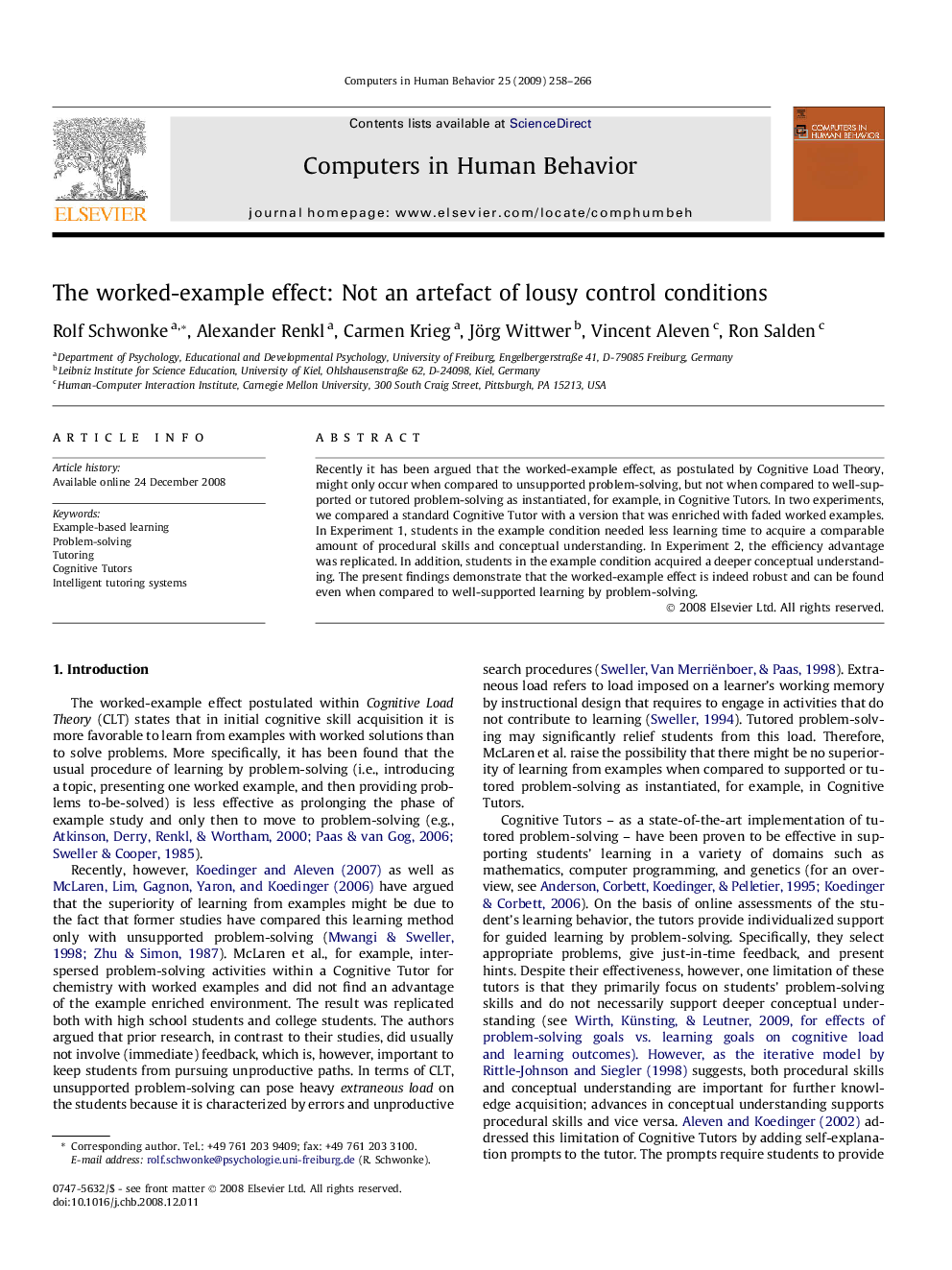| Article ID | Journal | Published Year | Pages | File Type |
|---|---|---|---|---|
| 352249 | Computers in Human Behavior | 2009 | 9 Pages |
Recently it has been argued that the worked-example effect, as postulated by Cognitive Load Theory, might only occur when compared to unsupported problem-solving, but not when compared to well-supported or tutored problem-solving as instantiated, for example, in Cognitive Tutors. In two experiments, we compared a standard Cognitive Tutor with a version that was enriched with faded worked examples. In Experiment 1, students in the example condition needed less learning time to acquire a comparable amount of procedural skills and conceptual understanding. In Experiment 2, the efficiency advantage was replicated. In addition, students in the example condition acquired a deeper conceptual understanding. The present findings demonstrate that the worked-example effect is indeed robust and can be found even when compared to well-supported learning by problem-solving.
